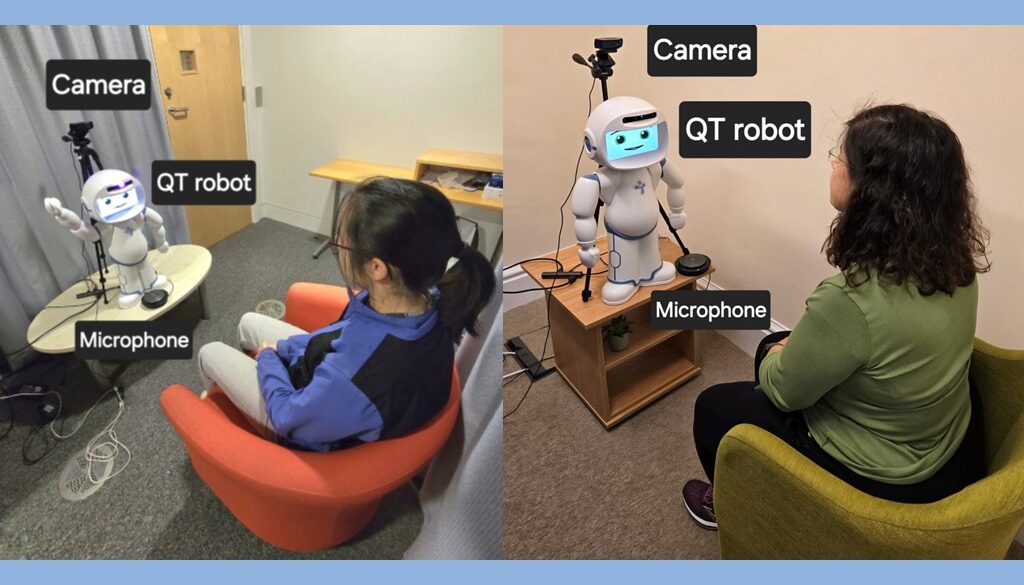
Abstract:
Emotion regulation is a crucial skill for managing emotions in everyday life, yet finding a constructive and accessible method to support these processes remains challenging due to their cognitive demands. In this study, we explore how regular interactions with a social robot, conducted in a structured yet familiar environment within university halls and departments, can provide effective support for emotion regulation through cognitive reappraisal. Twenty-one students participated in a five-session study at a university hall or department, where the robot facilitated structured conversations, encouraging the students to reinterpret emotionally charged situations that they shared with the robot. Quantitative and qualitative results indicate significant improvements in emotion self-regulation, with participants reporting better understanding and control of their emotions. The intervention led to significant changes in constructive emotion regulation tendencies and positive effects on mood and sentiment after each session. The findings also demonstrate that repeated interactions with the robot encouraged greater emotional expressiveness, including longer speech disclosures, increased use of affective language, and heightened facial arousal. Notably, expressiveness followed structured patterns aligned with the reappraisal process, with expression peaking during key reappraisal moments, particularly when participants were prompted to reinterpret negative experiences. The qualitative feedback further highlighted how the robot fostered introspection and provided a supportive space for discussing emotions, enabling participants to confront long-avoided emotional challenges. These findings demonstrate the potential of robots to effectively assist in emotion regulation in familiar environments, offering both emotional support and cognitive guidance.
Reference:
Laban, G., Wang, J. and Gunes, H., 2025. A Robot-Led Intervention for Emotion Regulation: From Expression to Reappraisal. arXiv preprint arXiv:2503.18243.
https://arxiv.org/abs/2503.18243